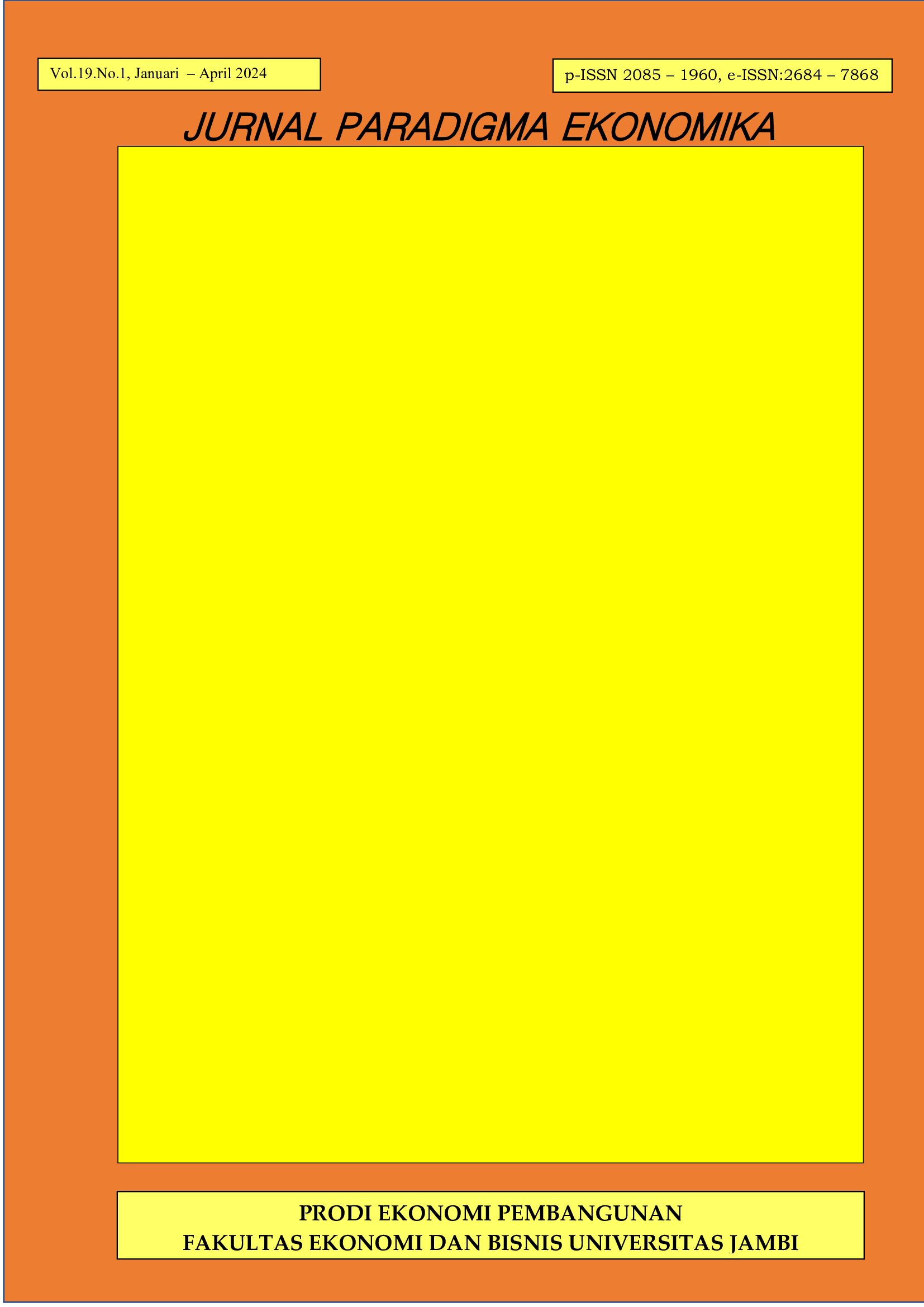Intrapreneurship leadership model on stakeholder satisfaction
DOI:
https://doi.org/10.22437/jpe.v19i1.23970Keywords:
intrapreneurship, leadership, satisfaction stakeholder, strategic development security, preventiveAbstract
This study aims to find out how the implementation of the strategic development security section activities at the Jambi High Prosecutor's Office in the context of securing the work of national strategic projects and regionally strategic projects in Jambi Province and to determine the effect of intrapreneurship, leadership to satisfaction stakeholder (applicants, service providers, supervisory consultants, etc.) as well as phenomena that occur in these activities such as work not according to the schedule, work not by following with the specifications contained in the contract, lack of quality of work due to pursuing progress, etc. This research was conducted for 2021, using quantitative research methods based on data cross-sectional and collected through a survey questionnaire. The data analysis technique in this study uses Partial Least Square (PLS) with a population of 74 respondents consisting of activity applicants (heads, commitment makers, technical implementation officers), service providers/partners (directors, managers, and field implementers), and consultants supervisors (director, team leader, and field supervisor). The result of this study is intrapreneurship's significant and positive effect on satisfaction stakeholders, Besides that leadership also has a positive and significant impact on satisfaction stakeholders. This study provides insight into how intrapreneurship and leadership in terms of raising personnel and materials as well as coordinating with related parties in securing strategic project development activities, intrapreneurship and leadership have a positive impact on the project being carried out so that it can be carried out time, on target, on budget, and quality to provide satisfaction stakeholder and increase public trust in the effort to maximize the prevention of corruption.
Downloads
References
Abdelwaheed, N. A. A., Soomro, B. A., & Shah, N. (2022). Determining employee satisfaction, intrapreneurship, and firm growth among managers of Pakistan. Heliyon Journal, 8, 1-8.
Amir, M. T. (2016). Corporate entrepreneurship & innovation (Cetakan ke-1). Jakarta: Kencana.
Cooper, D. R., & Schindler, P. A. (2017). Metode penelitian bisnis (Buku 1, Edisi 12, Terjemahan R. Wijayanti & G. Gania). Jakarta: Salemba Empat.
Daryani, M. A., & Rezvanfar, A. (2011). A conceptual model of intrapreneurship in the Iranian agriculture extension organization. Journal of European Industrial Training, 35(7), 1-27.
Dewi, N. N., & Wibowo, R. (2019). The effect of leadership, organizational culture, and motivation on employee performance. Management Science Letters Journal, 10, 1-8.
Dhewanto, W. (2013). Intrapreneurship: kewirausahaan korporasi (Cetakan ke-1). Bandung: Rekayasa Sains.
Farooq, M. S., et al. (2017). Impact of service quality on customer satisfaction in Malaysia airlines: A PLS-SEM approach. Journal of Air Transport Management, 67, 1-12.
Handoko, T. H. (2014). Manajemen personalia dan sumberdaya manusia (Cetakan ke-21). Yogyakarta: BPFE-Yogyakarta.
Hisrich, R. D., Peters, M. P., & Shepherd, D. A. (2020). Entrepreneurship (Edisi 7, terjemahan C. Sungkowo & D. Angelica). Jakarta: Salemba Empat.
Kaswan. (2014). Leadership and teamworking. Bandung: Alfabeta.
Kotler, P., & Keller, K. L. (2016). Manajemen pemasaran (Jilid I). Jakarta: Erlangga.
Mustaqim. (2016). The influence of leadership and motivation of employees' job satisfaction. International Journal of Economics and Finance, 8(10), 1-8.
Nurmansyah, F. I., Amiruddin, & Parman, L. (2020). Fungsi preventif seksi pengamanan pembangunan strategis pada kejaksaan tinggi nusa tenggara barat dalam tindak pidana korupsi. Jurnal Education and Development, 8(1), 1-13.
Özsungur, F. (2020). The effects of ethical leadership on work engagement, intrapreneurship, and service innovation behavior: Sample of chambers of commerce and industry. International Journal of Public Leadership, 16(2), 1-18.
Petunjuk Teknis Jaksa Agung Republik Indonesia Nomor: B-484/D/Dpp/03/2020 tentang Pelaksanaan Pengamanan Pembangunan Strategis.
Peraturan Kejaksaan Nomor 6 Tahun 2019 tentang Perubahan atas Peraturan Jaksa Agung RI No. PER-006/A/JA/07/2017 tentang Organisasi dan Tata Kerja Kejaksaan Republik Indonesia.
Robbins, S. P., & Judge, T. A. (2017). Perilaku organisasi (Edisi 17, Terjemahan R. Saraswati & F. Sirait). Jakarta: Salemba Empat.
Sayyadi, M. (2019). How effective leadership of knowledge management impacts organizational performance. Journal of Business Information Review, 1-9.
Siagian, S. P. (2004). Manajemen sumber daya manusia. Jakarta: Bumi Aksara.
Sugiyono. (2018). Metode penelitian bisnis (cetakan ke-6). Bandung: Alfabeta.
Sunarta. (2021). Sosialisasi dan fungsi direktorat D (direktorat pengamanan pembangunan strategis). diakses dari https://pji.kejaksaan.go.id/index.php/ home/berita/1506 pada 12 November 2022.
Sutanto, E. M. (2021). Entrepreneurial leadership dalam organisasi. Surabaya: UK Petra. Diakses dari http://repository.petra.ac.id/19038/1/Publikasi1_91022_ 7003.pdf.
Tjiptono, F., & Chandra, G. (2016). Service, quality dan satisfaction (Edisi 4). Yogyakarta: Penerbit ANDI.
Uzir, M. U. A., et al. (2021). The effect of service quality, perceived value and trust in home delivery service personal on customer satisfaction: Evidence from a developing country. Journal of Retailing and Consumer Services, 63, 1-15.
Yukl, G. (2015). Kepemimpinan dalam organisasi (Edisi 7, Terjemahan A. Cahyani). Jakarta: Indeks.
Downloads
Published
How to Cite
Issue
Section
License
Copyright (c) 2024 Hertoyo Hartoyo, Fitriaty Fitriaty, Dahmiri Dahmiri

This work is licensed under a Creative Commons Attribution-ShareAlike 4.0 International License.









